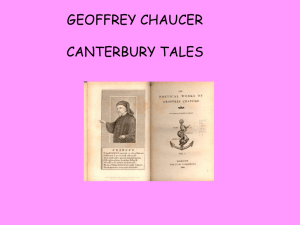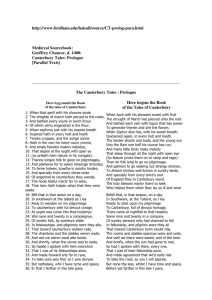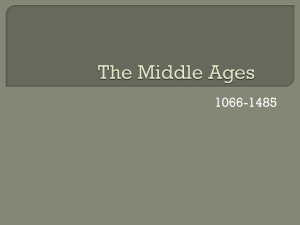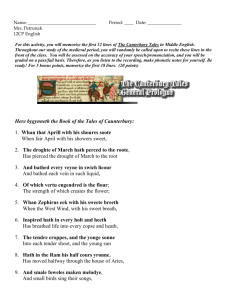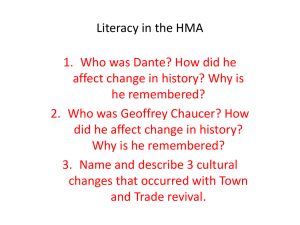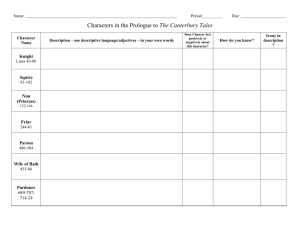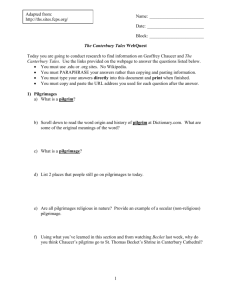Day One: Getting Oriented
advertisement
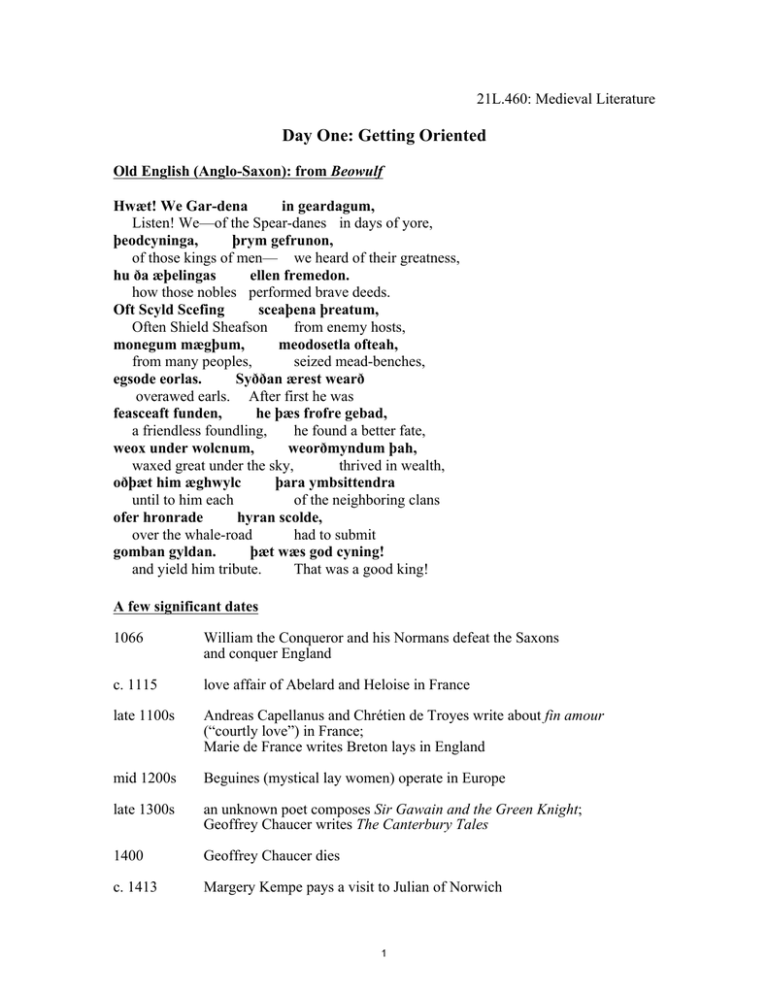
21L.460: Medieval Literature Day One: Getting Oriented Old English (Anglo-Saxon): from Beowulf Hwæt! We Gar-dena in geardagum, Listen! We—of the Spear-danes in days of yore, þeodcyninga, þrym gefrunon, of those kings of men— we heard of their greatness, hu ða æþelingas ellen fremedon. how those nobles performed brave deeds. Oft Scyld Scefing sceaþena þreatum, Often Shield Sheafson from enemy hosts, monegum mægþum, meodosetla ofteah, from many peoples, seized mead-benches, egsode eorlas. Syððan ærest wearð overawed earls. After first he was feasceaft funden, he þæs frofre gebad, a friendless foundling, he found a better fate, weox under wolcnum, weorðmyndum þah, waxed great under the sky, thrived in wealth, oðþæt him æghwylc þara ymbsittendra until to him each of the neighboring clans ofer hronrade hyran scolde, over the whale-road had to submit gomban gyldan. þæt wæs god cyning! and yield him tribute. That was a good king! A few significant dates 1066 William the Conqueror and his Normans defeat the Saxons and conquer England c. 1115 love affair of Abelard and Heloise in France late 1100s Andreas Capellanus and Chrétien de Troyes write about fin amour (“courtly love”) in France; Marie de France writes Breton lays in England mid 1200s Beguines (mystical lay women) operate in Europe late 1300s an unknown poet composes Sir Gawain and the Green Knight; Geoffrey Chaucer writes The Canterbury Tales 1400 Geoffrey Chaucer dies c. 1413 Margery Kempe pays a visit to Julian of Norwich 1 From the Wycliffite Bible In the first made God of nought heven and erthe. And God seid, “Be made light,” and made is light. Geoffrey Chaucer, Canterbury Tales General Prologue 1 2 3 4 5 6 7 8 9 10 11 12 13 14 15 16 17 18 Whan that Aprille with his shoures soote When April with its sweet-smelling showers The droghte of March hath perced to the roote, Has pierced the drought of March to the root, And bathed every veyne in swich licour And bathed every vein (of the plants) in such liquid Of which vertu engendred is the flour; By which power the flower is created; Whan Zephirus eek with his sweete breeth When the West Wind also with its sweet breath, Inspired hath in every holt and heeth In every wood and field has breathed life into The tendre croppes, and the yonge sonne The tender new leaves, and the young sun Hath in the Ram his half cours yronne, Has run half its course in Aries, And smale foweles maken melodye, And small fowls make melody, That slepen al the nyght with open ye Those that sleep all the night with open eyes (So priketh hem Nature in hir corages), (So Nature incites them in their hearts), Thanne longen folk to goon on pilgrimages, Then folk long to go on pilgrimages, And palmeres for to seken straunge strondes, And professional pilgrims to seek foreign shores, To ferne halwes, kowthe in sondry londes; To distant shrines, known in various lands; And specially from every shires ende And specially from every shire's end Of Engelond to Caunterbury they wende, Of England to Canterbury they travel, The hooly blisful martir for to seke, To seek the holy blessed martyr, That hem hath holpen whan that they were seeke. Who helped them when they were sick. 2 MIT OpenCourseWare http://ocw.mit.edu 21L.460 Medieval Literature: Love, Sex, and Marriage Spring 2015 For information about citing these materials or our Terms of Use, visit: http://ocw.mit.edu/terms.
